Writing: Non-Fiction
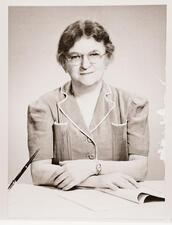
Frances Stern
Frances Stern’s experience as a second-generation American Jew dedicated to social reform and in contact with several prominent women engaged in social work led her to a career in scientific nutrition, applied dietetics, and home economics. Stern founded the Food Clinic of the Boston Dispensary, a center for dispensing practical advice on food and meal preparation for outpatients and their families that also served as a center for research on the relationships among health, nutrition, class, and ethnicity.
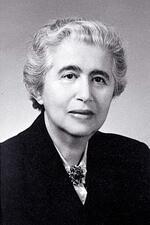
Selma Stern-Taeubler
Originally a historian and researcher in Heidelberg and Berlin, Selma Stern-Taeubler settled at the Hebrew Union College in Cincinatti after fleeing Nazi Germany. She became the first archivist of the American Jewish Archives at the college and later wrote books of fiction and nonfiction. Despite her contributions to Jewish history, American-Jewish academe has largely undervalued Stern-Taeubler’s work, which continued until her death in 1981.
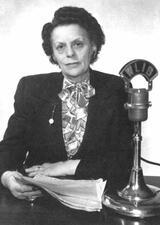
Estelle Sternberger
Believing in a future where all people had a voice and women’s work was valued, Estelle Sternberger found a myriad of ways to reshape public opinion, from hosting a political radio show to leading an organization for peace.
Debbie Stoller
Hannah Mayer Stone
Lillian Laser Strauss
Lillian Laser Strauss performed pioneering work in public health and child welfare in Pennsylvania, became a lawyer at age fifty, and, in the midst of active legal advocacy for public health, died suddenly of a heart attack at age fifty-six.
Manya Gordon Strunsky
Manya Gordon Strunsky was a socialist activist and a respected writer on political and social issues. Strunsky was also instrumental in bringing Jewish immigrants from czarist Russia to America and helping them to become settled.

Sarra Copia Sullam
The best-known and least typical Jewish woman of early-modern Italy, Sarra Copia Sullam engaged publicly with leading intellectuals and produced poetry, letters, and polemics, particularly about the belief in immortality of the soul. The context of her literary activity was the academies (accademia) of Venice, including one that she held in her own house, which attracted a stream of distinguished visitors from the city states of northern Italy who discussed philosophy, theology, art, and literature and who engaged in domestic intrigue.
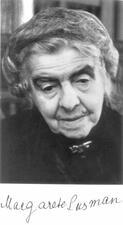
Margarete Susman
Margarete Susman published her first writings, a book of poetry, in 1901 and went on to have a prolific writing career that included plays, books, and journal articles. Susman combined literature and theory, often reflecting seminal texts of modern theory and addressing political issues and women’s rights. Her writings concentrate on the most problematic issues of the modern world: God and human beings, man and woman, Jew and Christian.
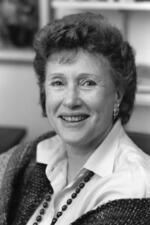
Amy Swerdlow
Amy Swerdlow (1923-2012), child of a Communist household in the Bronx, shared her parents’ dedication to making a better world but developed her own political agenda. She became a leader of the global women’s peace movement, a pioneer in the field of women’s history, and a professor of history and women’s studies at Sarah Lawrence College in Yonkers, New York.
Marie Syrkin
Marie Syrkin is best known as a polemicist for the State of Israel, whose keen arguments appeared in a wide range of publications for a period of almost seventy years. Her life touched almost every significant aspect of Jewish life in America and Europe in the twentieth century.
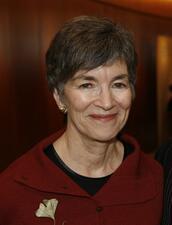
Nicki Newman Tanner

Helen Tanzer
Helen Tanzer was an educator and translator in the early twentieth century. Contributing to the dissemination of classical and archaeological works, Tanzer well fulfilled the rigorous requirements of scholar and teacher.
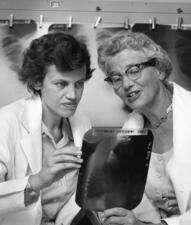
Helen Brooke Taussig
Helen Brooke Taussig was one of the most celebrated physicians of the twentieth century. Through her research and teaching. she was a leader in the development of the medical specialty of pediatric cardiology, pioneering treatment for infants with congenital cardiac defects.
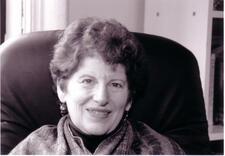
Meredith Tax
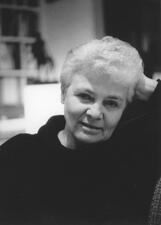
Nechama Tec
Nechama Tec's sociological work, informed by her experience as a Holocaust survivor, addresses the silences and inaccuracies surrounding the Holocaust and reveals untold stories of righteousness and rescue. Her experiences inspired the movie Defiance.
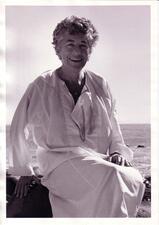
Savina Teubal
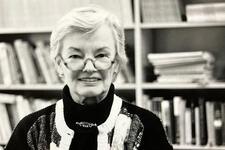
Judith Jarvis Thomson
Rivke Bas Me’ir Tiktiner

Tkhines
Tkhines were collections of prayers published in Yiddish, often specifically for women, across Europe from the sixteenth to the nineteenth century. The prayers addressed many themes of domestic and family life, although some also suggested women ought to be allowed into traditionally male spaces.
Ethel Tobach
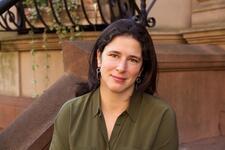
Rebecca Traister
Diana Trilling
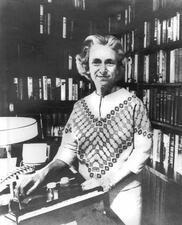
Barbara W. Tuchman

Rosalyn Tureck
Pianist Rosalyn Tureck toured the world as a consummate interpreter of the keyboard music of Johann Sebastian Bach. Tureck made her Carnegie Hall debut in 1935 before touring in Europe, South America, Israel, Turkey, South Africa, and Australia. In 1994 she founded the Oxford-based Tureck Bach Research Institute.


